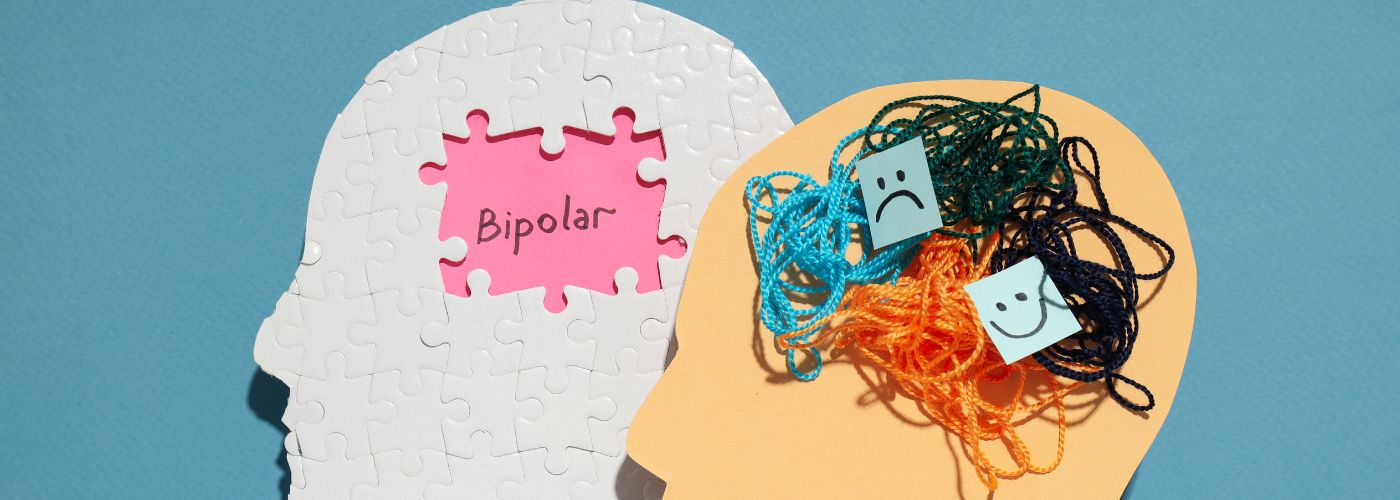Bipolar disorder therapy is vital in managing and treating this mental health condition. It involves specific strategies and interventions that aim to stabilize mood swings, reduce symptoms, and enhance overall functioning.
Licensed Bipolar Disorder Therapist
We are a team of highly skilled and licensed therapists specializing in the treatment of bipolar disorder. Our extensive experience and expertise ensure that we can provide the most effective and personalized care for individuals diagnosed with this condition.
Our therapists are dedicated to developing individualized treatment plans tailored to address each client’s specific needs. Through one-on-one counseling sessions, we help clients explore their emotions, develop coping strategies, manage stressors, and improve their overall quality of life.
We stay up-to-date on the latest advancements in bipolar disorder therapy research and treatment methods to ensure our clients receive the most current and evidence-based care. We regularly collaborate with other mental health professionals, physicians, and psychiatrists to provide integrated care for our clients’ well-rounded support system.

Can Bipolar Disorder Be Treated With Just Therapy?
Bipolar disorder, a mental health condition characterized by extreme mood swings, can be treated with therapy; however, it is typically more effective when used with medication. Therapy for bipolar disorder often involves a combination of different approaches, such as cognitive-behavioral therapy (CBT), dialectical behavior therapy (DBT), and interpersonal and social rhythm therapy (IPSRT).
Therapy helps individuals with bipolar disorder manage their symptoms, gain insight into their condition, develop coping strategies, and improve overall functioning. It provides a safe space to explore the underlying issues contributing to mood swings and behaviors. Additionally, therapists assist in identifying triggers for episodes and developing an individualized relapse prevention plan.
While therapy plays a vital role in managing bipolar disorder, medication is often necessary to stabilize mood swings more effectively. Medications commonly prescribed for bipolar disorder include mood stabilizers like lithium or anticonvulsant drugs like valproate. These medications help regulate neurotransmitter activity in the brain, contributing to shifts between depressive and manic episodes.
A comprehensive treatment plan for bipolar disorder usually includes both therapy and medication; this approach has shown greater efficacy by addressing biological imbalances alongside psychological factors.
Bipolar Disorder Therapy Treatment
One widely used approach is cognitive behavioral therapy (CBT), which focuses on identifying and changing negative thought patterns and behaviors that contribute to mood disturbances. CBT helps individuals develop coping strategies to handle stress better and regulate their emotions. It also assists in recognizing early warning signs of manic or depressive episodes, allowing for timely intervention.
Another effective method is interpersonal and social rhythm therapy (IPSRT). This type of therapy emphasizes maintaining stable daily routines and managing interpersonal relationships. By developing consistent sleep, exercise, and meal patterns, patients can minimize potential triggers for mood fluctuations.
Family-focused therapy (FFT) involves the involvement of the individual’s family members in the treatment process. The goal is to enhance communication within the family unit while educating loved ones about bipolar disorder symptoms and how they can provide support.
Psychoeducation plays a crucial role in bipolar disorder therapy. It educates patients about their condition, its causes, common symptoms, available treatments, and ways to self-manage symptoms effectively. Providing this knowledge empowers individuals living with bipolar disorder to participate in their own care actively.
Therapists might also employ mindfulness-based strategies to help individuals become more aware of their thoughts, emotions, bodily sensations, and surroundings without judgment or resistance. Mindfulness exercises can assist in reducing stress levels during times of increased anxiety or agitation.

Our Methods for Bipolar Disorder Therapy
At Mindful Healing Counseling, we offer a range of effective methods for treating bipolar disorder. Besides medication, we also utilize psychotherapy techniques such as cognitive-behavioral therapy (CBT) to help individuals understand and manage their thoughts and behaviors associated with bipolar disorder. CBT focuses on developing coping strategies for mood swings, identifying triggers, and promoting stable routines.
Additionally, we encourage support groups wherein individuals with bipolar disorder can connect with others who understand their experiences. These groups foster a sense of community and allow for shared discussions about challenges and successes in managing the condition. Furthermore, our clinic offers family therapy sessions to involve loved ones in treatment. This helps educate family members about the disorder, enhance communication skills within the family dynamic, and establish a supportive environment.
To complement traditional therapies, our clinic incorporates holistic approaches to address various aspects of well-being. We emphasize the importance of regular physical activity in managing bipolar symptoms by recommending personalized exercise plans. Moreover, we encourage clients to explore mindfulness meditation or yoga techniques to promote relaxation and manage stress levels.
Our comprehensive approach takes into account the unique needs and preferences of each individual diagnosed with bipolar disorder. Our dedicated professionals work collaboratively to create personalized treatment plans encompassing multiple therapeutic modalities. By combining medication management, psychotherapy techniques like CBT, support groups, family therapy sessions, holistic approaches such as exercise plans, and mindful practices, we aim to provide comprehensive care that supports individuals throughout their journey toward managing bipolar disorder effectively while improving overall well-being.
How To Prepare For Bipolar Disorder Therapy
Preparing for bipolar disorder therapy is essential to manage this mental health condition effectively. To ensure a successful and productive therapy journey, it is vital to take certain preparatory measures. Firstly, familiarize yourself with the various types of therapy available, such as cognitive-behavioral therapy or psychodynamic therapy, and consult with your healthcare provider to determine which approach suits you best.
Next, gather relevant medical records and documentation that outline your bipolar symptoms, treatments received, and any hospitalizations that may have occurred. These records will serve as valuable references for your therapist to understand your condition’s history better. Additionally, make a list of all current medications, including dosage amounts, to share with the therapist.
Reflecting on personal experiences and challenges faced during manic or depressive episodes can also help in identifying specific goals you wish to achieve through individual therapy. This self-reflection will enhance communication with your therapist by providing them with a comprehensive understanding of your unique struggles.
Ensuring openness and honesty during sessions is crucial. Building trust between you and the therapist; therefore, truthfully sharing feelings, emotions, fears, or concerns is important for the therapeutic process. Preparing questions beforehand will aid in engaging actively during each session while addressing any uncertainties or doubts regarding treatment.
Our Expert Advice On Bipolar Disorder Therapy
At our clinic, we understand the complexities and challenges that individuals with bipolar disorder face. That’s why we offer a range of expert advice regarding therapy options tailored specifically for this condition. Bipolar disorder is a chronic mental health condition characterized by extreme mood swings, including episodes of mania and depression. Our team of experienced professionals believes in a comprehensive approach to treatment that includes therapy as a vital component.
The choice of therapy depends on various factors, such as the individual’s specific needs, preferences, and overall treatment plan. Our clinicians work closely with each patient to tailor an appropriate therapeutic approach best suited to their circumstances.